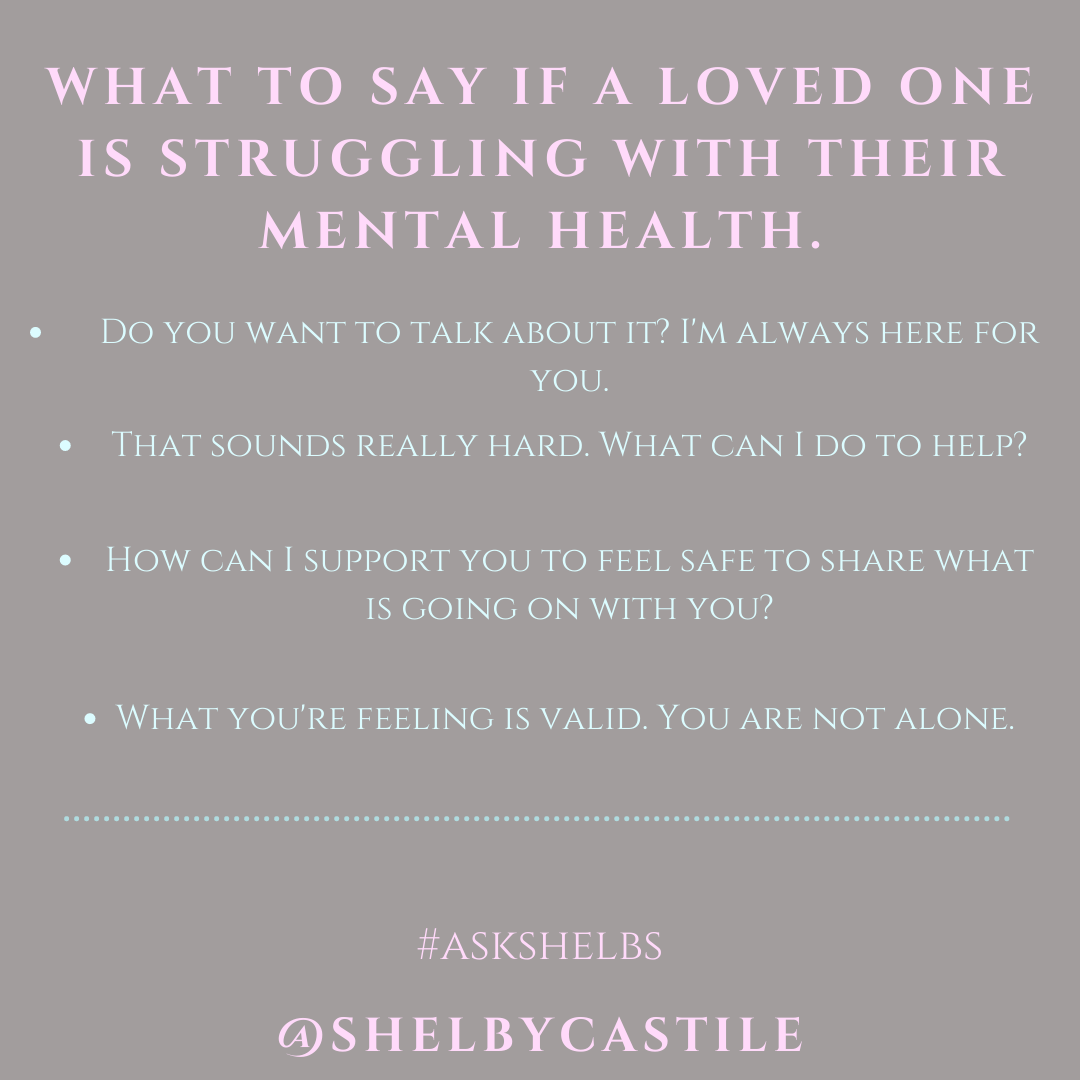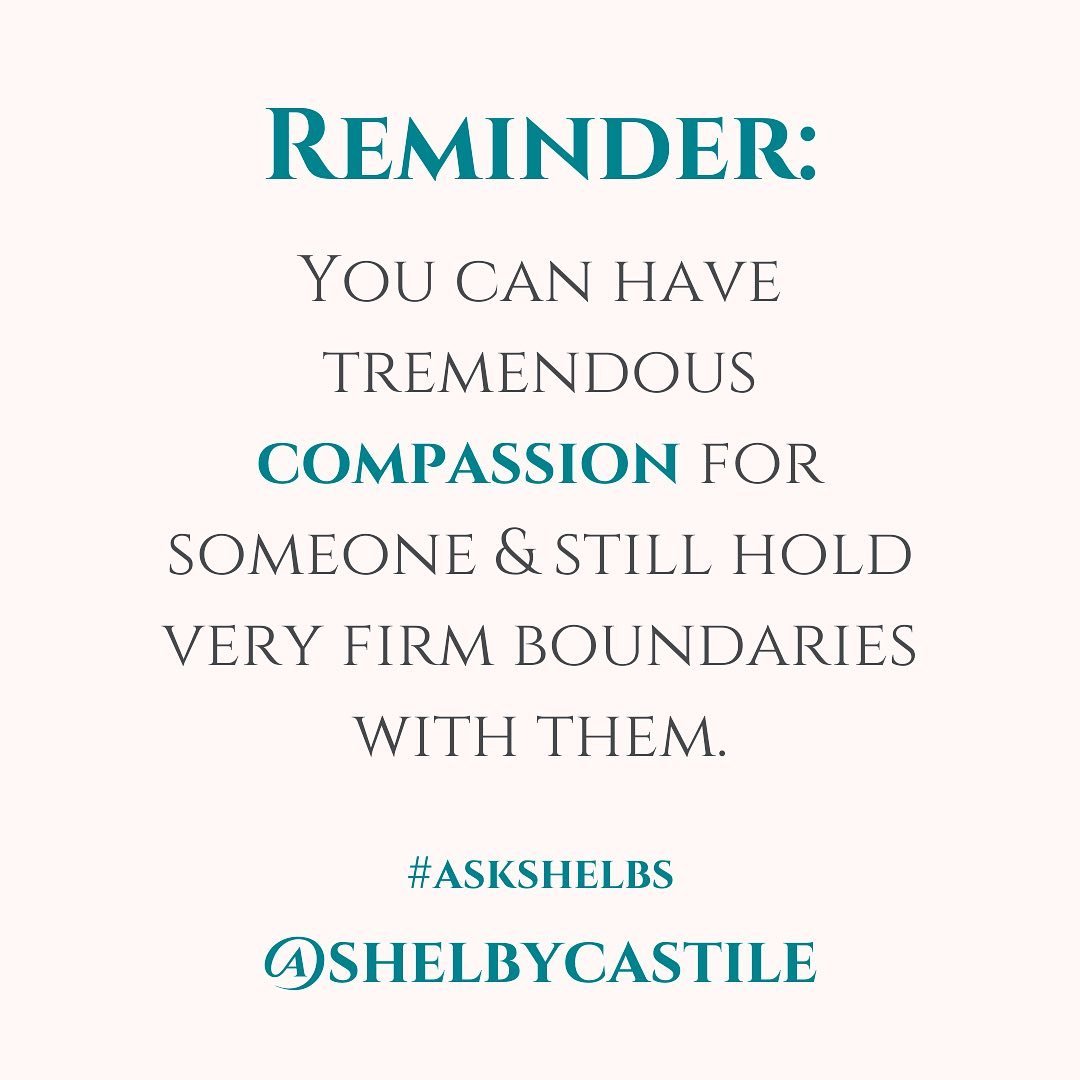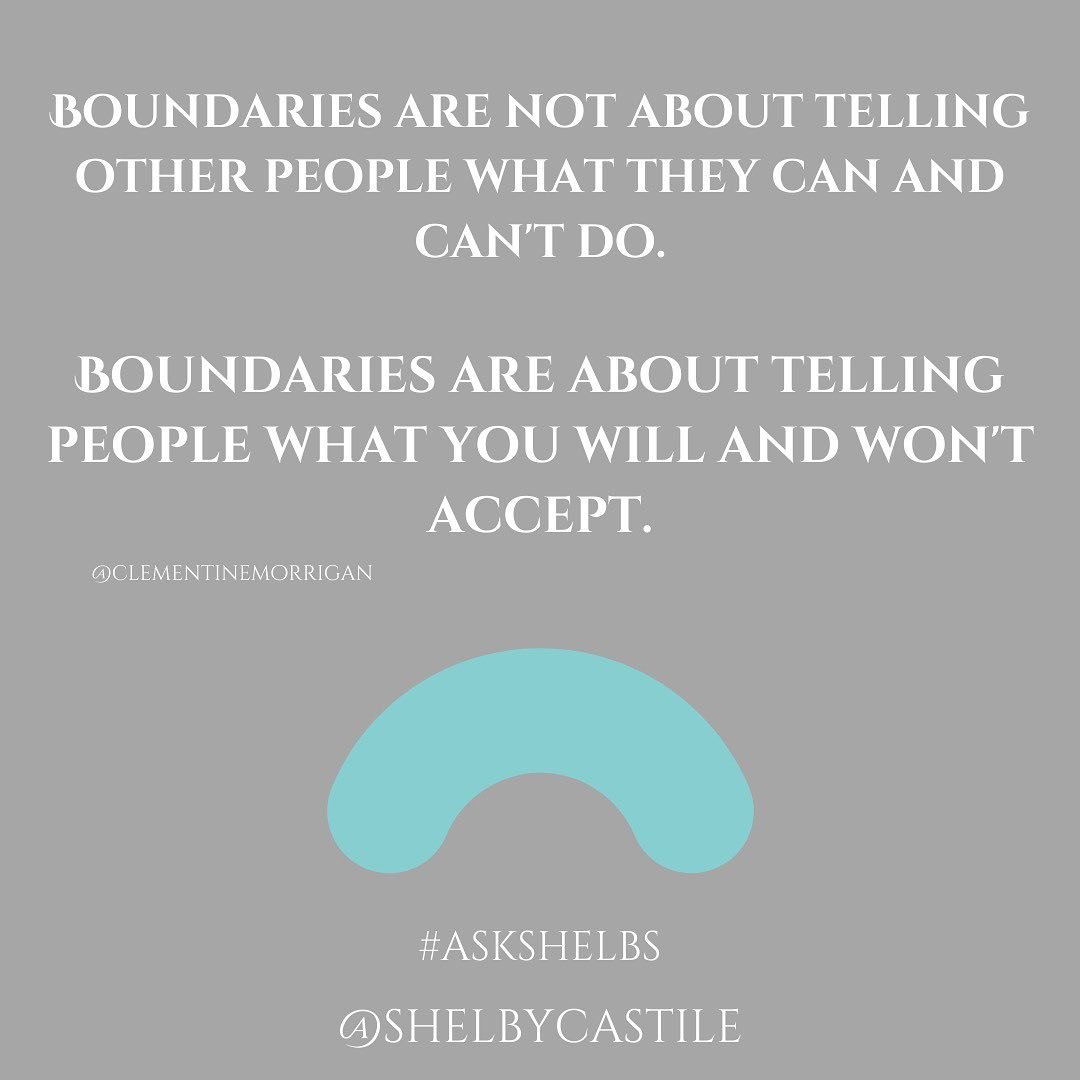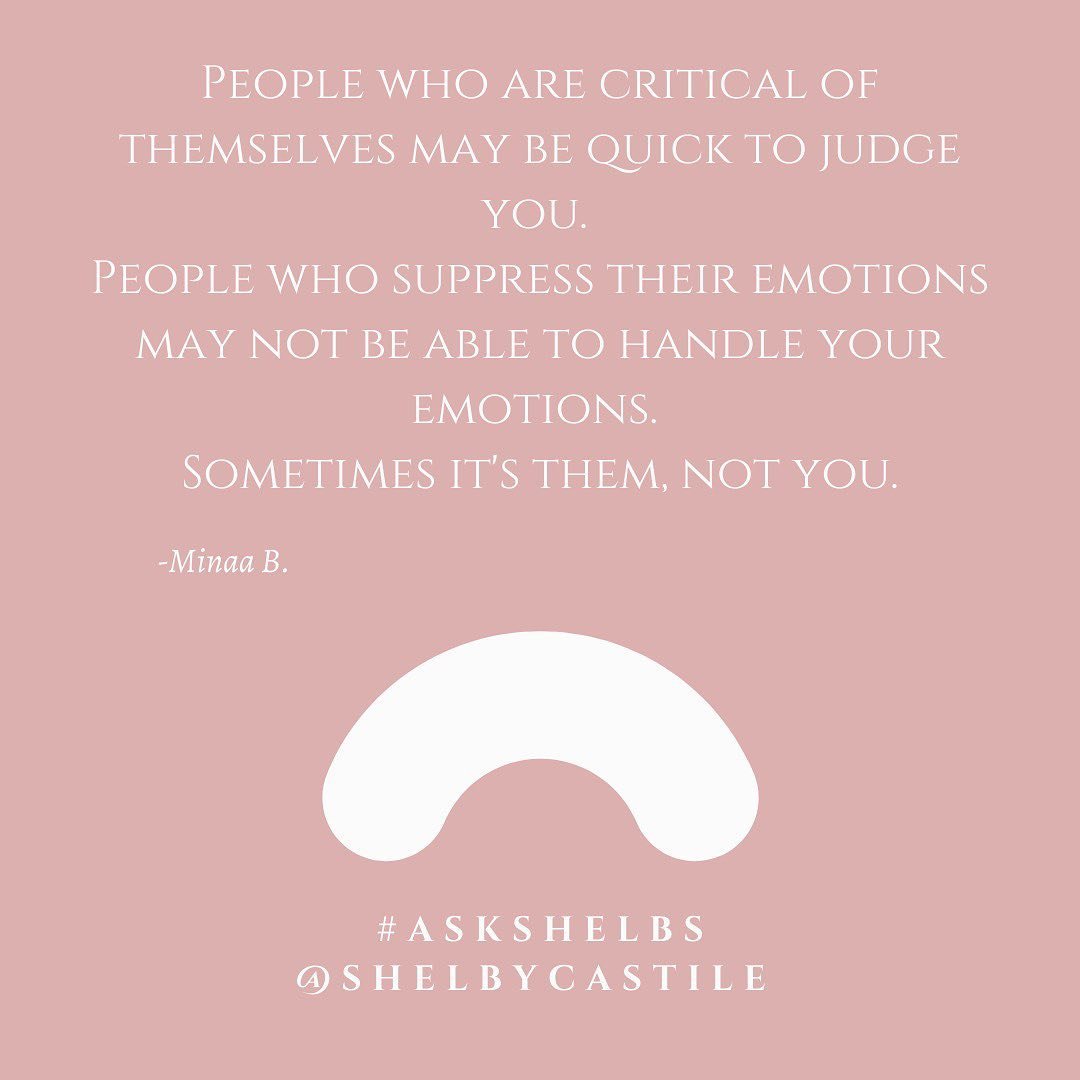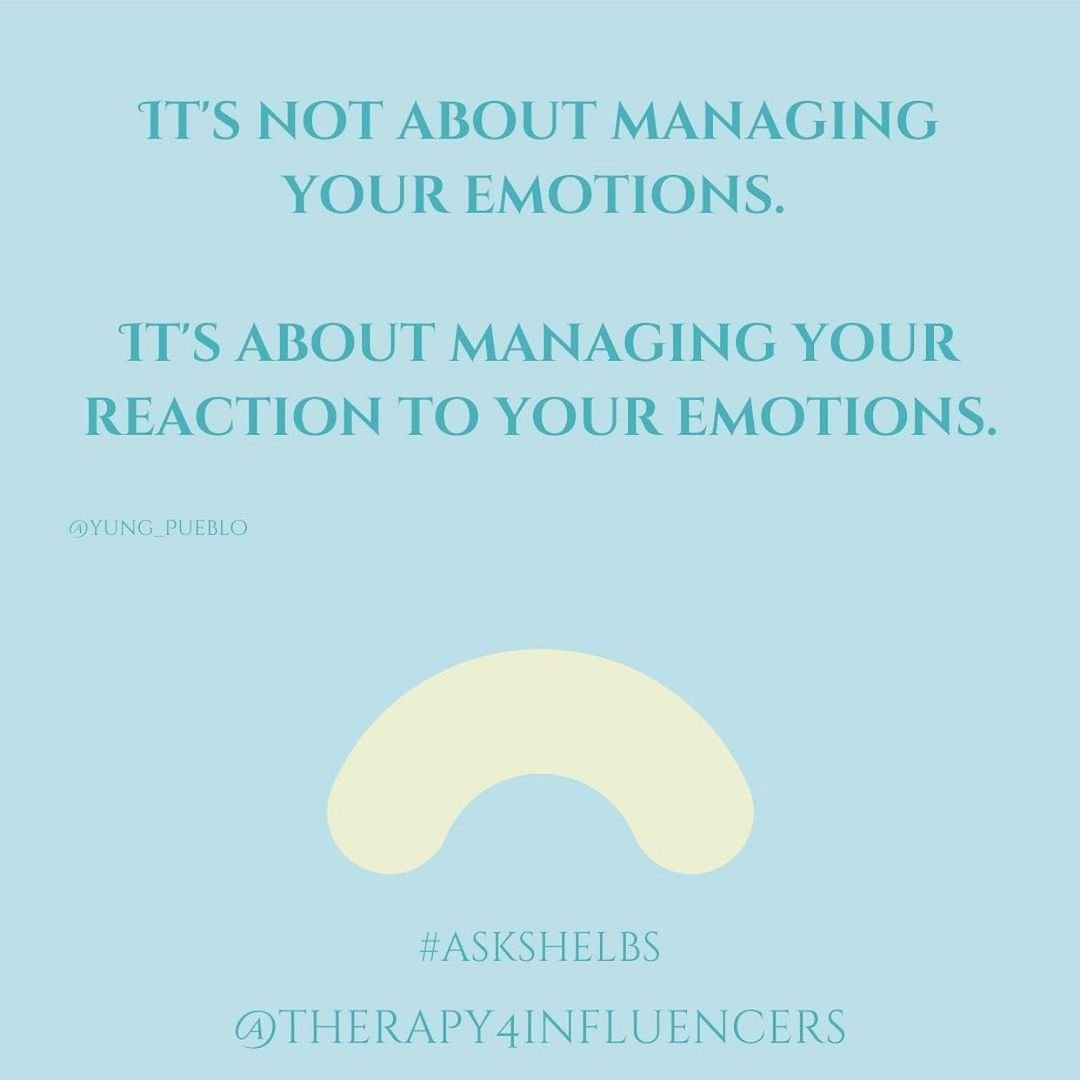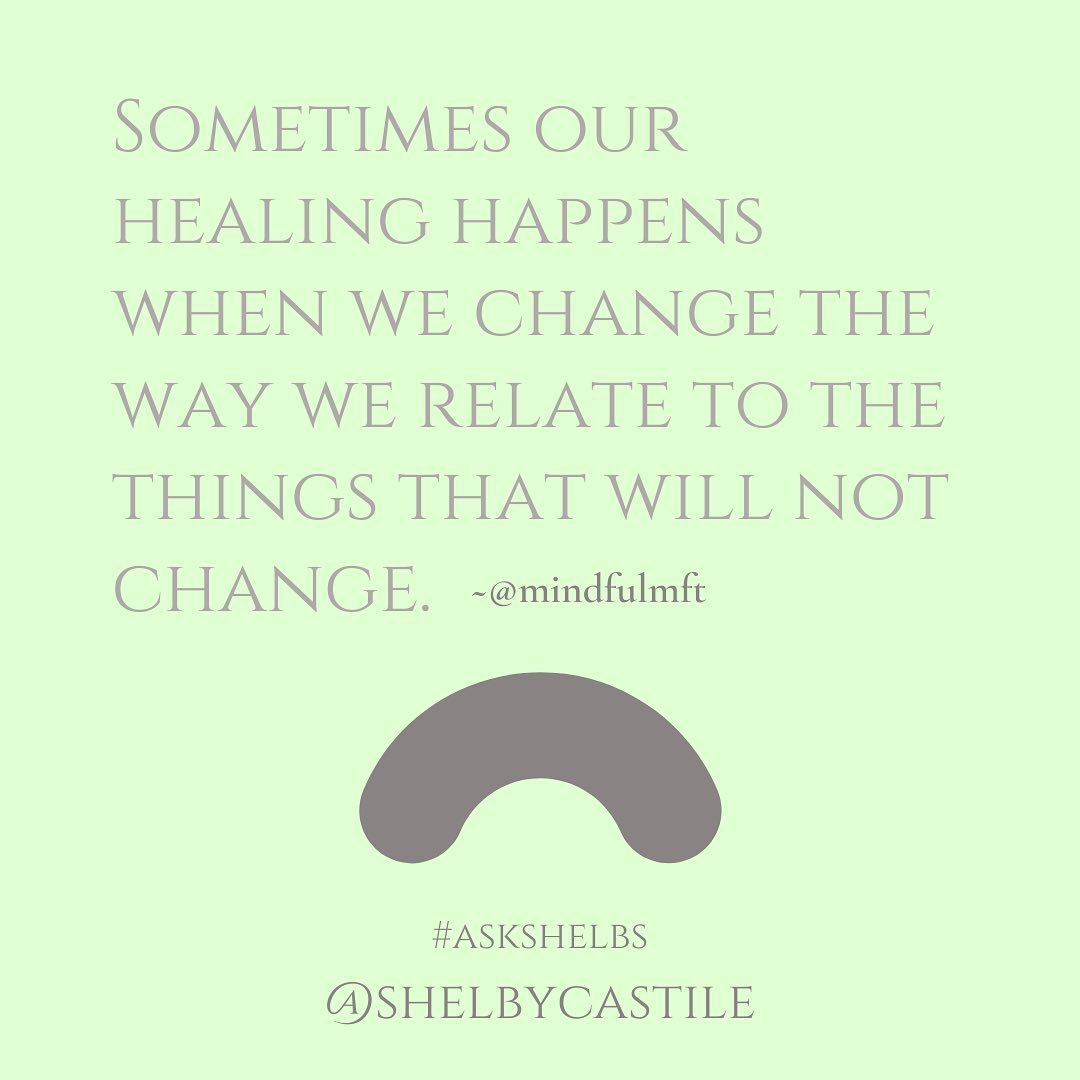What To Say If A Loved One Is Struggling With Their Mental Health
“The more you understand what your loved one is going through, the better you’ll be able to help them.”
Educate yourself. Someone struggling with their mental health may feel ashamed or embarrassed to bring up the topic themselves, so it’s important to recognize the signs on your own so you can help. Start by expressing your own concern rather than acting as if something is wrong with the person.
Try using statements like “I’ve been worried about you lately” or “I’m concerned.” Let them lead the conversation by asking open-ended questions like “I’ve noticed you’ve seemed down lately. How are you feeling?” Let them volunteer information on their own time + don’t pressure them to talk if they aren’t ready. Remind them that you are available to listen when they are ready. This will help your loved one feel comfortable opening up to you in the future. A simple “I’m here for you every step of the way”, or “I want to support you any way that I can,” will also have a great impact.
Remember that the fear and struggle of one person can be + often is, completely different than another. Practice leaning into their expressed needs + leaning away from the feeling to fix and solve.
Ways To Show Your Support
“I am here for you.”
“How can I help?”
“What is the best way I can support you?” {listen carefully + if you’re able to help, make sure you follow through}
“Is there anything I can take off your plate?” {only offer this if you’re able to follow through}
“Your feelings are valid.”
“You’re important to me.”
“You’re not alone.”
“We’ll figure this out together.”
“That sounds hard. I’m sorry you’re going through this.”
What NOT To Say
“Snap out of it.”
“Think positive.”
“I know exactly how you feel.”
“It could be worse.”
“What’s your problem?”
“It’s just because... [insert event]”
“It’s all in your head.”
“Why can’t you get it together?”
“This is your fault.”
“You’re causing this.”
“I have problems, too.”
One of the best things you can do to help your loved one is to simply offer up your presence. Lending a non-judgmental ear and being a shoulder to cry can be comforting to someone who may be feeling alone, worried, or depressed. Let that person know you are there for them + available to listen. Show empathy + avoid trying to solve the problem or offering unsolicited advice.


